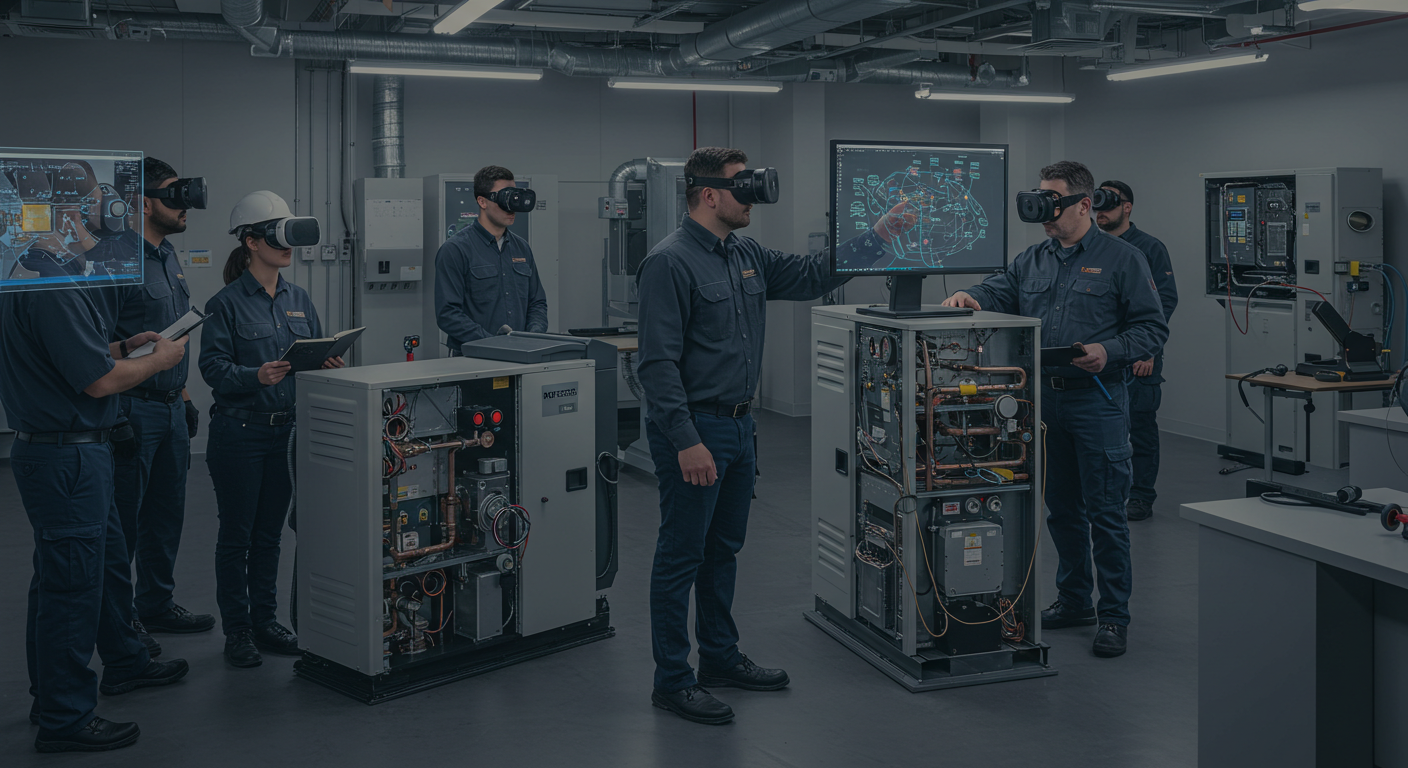
How Micro-Certifications Are Revolutionizing HVAC Training
In today’s fast-paced world, traditional HVAC training methods are evolving to meet industry demands. Enter micro-certifications—an innovative approach that’s making waves in HVAC education. If you’re curious about how these targeted credentials are reshaping the field, you’re in the right place. Let’s dive into the world of HVAC micro-certifications and see why they’re becoming the go-to solution for both aspiring technicians and seasoned professionals.
The Rise of Micro-Certifications in HVAC
Micro-certifications in HVAC offer focused, stackable credentials that hone in on practical skills such as refrigeration, electrical controls, and heating systems. Unlike traditional two-year degrees, these programs are designed to get you workforce-ready in a fraction of the time. For instance, Monroe Community College offers a 13-credit microcredential blending lab practice with paid work-based learning, setting you up for immediate job entry with skills that employers are actively seeking.
Addressing the Technician Shortage
With over 42,500 projected annual job openings in HVAC and numerous positions going unfilled, employers are in dire need of skilled technicians. Micro-certifications significantly cut down training time, making them an attractive option for companies looking to fill these gaps quickly. Programs emphasize compliance with updated regulations and technologies, such as the EPA 608 Universal Refrigeration License and specialized safety certifications like OSHA 10 and A2L refrigerant safety.
Adapting to New Technologies
The HVAC industry is evolving, and so are the skills required. The growing demand for expertise in smart HVAC controls, IoT device integration, and energy-efficient systems is driving new micro-certification offerings. Whether it’s smart thermostat installation, ductless mini-split technologies, or cybersecurity in connected devices, there’s a micro-certification tailored to meet these emerging needs.
Hands-On Training with Advanced Systems
Micro-certifications often include practical training with advanced systems, such as those from Daikin. This hands-on experience ensures that you are not only learning but also aligning with the latest industry sustainability standards. Companies that invest in these robust training programs report a 30–50% increase in retention rates and a 24% higher profit margin compared to their peers.
- Accelerated training for immediate workforce entry
- Alignment with current industry regulations and technologies
- Opportunities for continuous upskilling and career advancement
- Improved employee retention and profitability for companies
Building a Pathway for Career Advancement
Micro-certifications are often designed to ladder into higher credentials or degrees, offering a scalable career path. As employer demand shifts, these programs are incorporating soft skills such as effective client communication and onsite troubleshooting to better prepare technicians for customer-facing roles.
Employment in HVAC is projected to grow 5–6% from 2022 to 2032, making now the perfect time to explore micro-certifications. With programs often requiring only 13–16 credits and integrating practical job placements, they offer a compelling alternative to traditional education paths.
Conclusion
Micro-certifications are transforming HVAC training by providing a fast, efficient, and practical route to career advancement. Whether you’re entering the field or looking to update your skills, these targeted programs offer a unique opportunity to stay ahead in a rapidly evolving industry.
Ready to take the next step in your HVAC career? Explore micro-certification programs today and unlock new opportunities!
FAQ Section
What are HVAC micro-certifications?
HVAC micro-certifications are targeted, stackable credentials that focus on specific practical skills in the HVAC industry, such as refrigeration and electrical controls.
How do micro-certifications benefit HVAC technicians?
They provide quick, industry-relevant training that can lead to immediate job placement and career advancement opportunities.
Are online HVAC micro-certifications available?
Yes, many programs offer online options, allowing you to learn at your own pace while balancing other commitments.
What is the EPA 608 HVAC micro-certification?
It’s a mandatory certification for technicians working with refrigerants, ensuring compliance with environmental regulations.
How do micro-certifications impact HVAC career advancement?
They offer a scalable pathway for continuous upskilling, allowing you to ladder into higher credentials or degrees over time.

